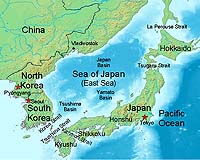 |
Baghdad (UPI) Oct 6, 2010 Iraq's sharp upward revision of its oil reserves to 143.1 billion barrels, and the prospect that there's much more to come, has cemented the country's status as a long-term energy producer when researchers say global oil output is set to decline. The Oil Ministry's announcement Monday raised Iraq's known oil reserves by 24 percent, eclipsing Iran's declared reserves of 137.6 billion barrels. But, according to Organization of Petroleum Exporting Countries data, Iraq trails Saudi Arabia and Venezuela in terms of known reserves of conventional crude. The reliability of the reserves that oil producers, and oil companies, claim is usually greeted with considerable skepticism within the industry. Indeed, there were suspicions Baghdad was hiking its figures to secure a larger OPEC quota than it would have been awarded for its previous reserves total of 115 billion barrels of oil, announced in 2001. However, industry analysts have said for some time Iraq could have as much again in unexplored fields. That would make its reserves of conventional crude the largest in the world, surpassing even Saudi Arabia's 264.6 billion barrels. There has been little exploration work over the last three decades. So whether that's true or not will emerge when the vast reservoirs of oil that haven't been tapped are fully explored. This will most likely be work of the foreign oil giants Baghdad awarded 20-year production contracts last year to upgrade Iraq's oil industry. They have already boosted output at several megafields and revised upward the estimated reserves for those fields through 3-D seismic surveys. "The oil reserve is for 66 discovered oilfields in Iraq and there are many others that have not been discovered yet," Oil Minister Hussein al-Shahristani declared Monday. "It is expected this figure will be increased when these oil fields are discovered." The true significance of Iraq's increased oil reserves should be viewed through the prism of warnings by industry researchers of a "significant risk" global oil production could start slipping over the next decade. A report by the UK Energy Research Council released Oct. 8, 2009, said worldwide production of conventionally extracted crude could "peak" and go into terminal decline before 2020 as known reserves are depleted. New major reserves of oil have been discovered in recent years in Brazil, Uganda, West Africa's Gulf of Guinea and in the Gulf of Mexico but advocates of the so-called peak oil theory say these won't be enough to compensate for the rate of decline of the fields currently producing. London's The Guardian newspaper reported recently that the Paris's International Energy Agency expects the demand for oil by 2030 will be for at least 103 million barrels a day. "The recession means this estimate will probably need downward revision but not by much," analyst Jeremy Leggett wrote. "To reach production of 103 million barrels a day would require adding 64 million barrels a day of totally new production capacity within 22 years," he said. That's six times the current Saudi production level. "The oil industry is not discovering giant oil fields at anything like the rate it was in the 1960s -- the peak decade for discoveries -- even with the recent crop of successes." The peak oil debate has been going on for more than a decade, with key governments and oil majors assuring the world the existing oil reserves will last for decades before crisis point is reached. Peak oil advocates claim there is a massive global coverup, with governments wary of preparing their people for what will happen when the oil runs out. The Guardian reported Aug. 22 Britain's government is more concerned about an energy crunch than admits and is canvassing views on peak oil from industry and the scientific community. The newspaper said the U.K. Department of Energy and Climate Change refuses to hand over policy documents about peak oil under Britain's Freedom of Information Act even though industrialists are demanding the government formulate a contingency plan for a future energy crisis. A draft study by a German military think tank, the Bundeswehr Transformation Center, recently warned that the irreversible depletion of raw material, including oil, would mean the decline of the industrialized nations, the "total collapse of the markets" and a withering political and economic crisis.
Share This Article With Planet Earth
Related Links Powering The World in the 21st Century at Energy-Daily.com
 Chinese patrol boats withdraw from disputed waters: Japan
Chinese patrol boats withdraw from disputed waters: JapanTokyo (AFP) Oct 6, 2010 Japan on Wednesday said two Chinese fisheries patrol boats have withdrawn from waters near a disputed island chain that is at the centre of the worst diplomatic row in years between the Asian giants. A coastguard spokeswoman said it had monitored the vessels with radar and that the boats left the area around dawn on Wednesday morning. Beijing had sent the boats on September 23 to protec ... read more |
|
| The content herein, unless otherwise known to be public domain, are Copyright 1995-2010 - SpaceDaily. AFP and UPI Wire Stories are copyright Agence France-Presse and United Press International. ESA Portal Reports are copyright European Space Agency. All NASA sourced material is public domain. Additional copyrights may apply in whole or part to other bona fide parties. Advertising does not imply endorsement,agreement or approval of any opinions, statements or information provided by SpaceDaily on any Web page published or hosted by SpaceDaily. Privacy Statement |